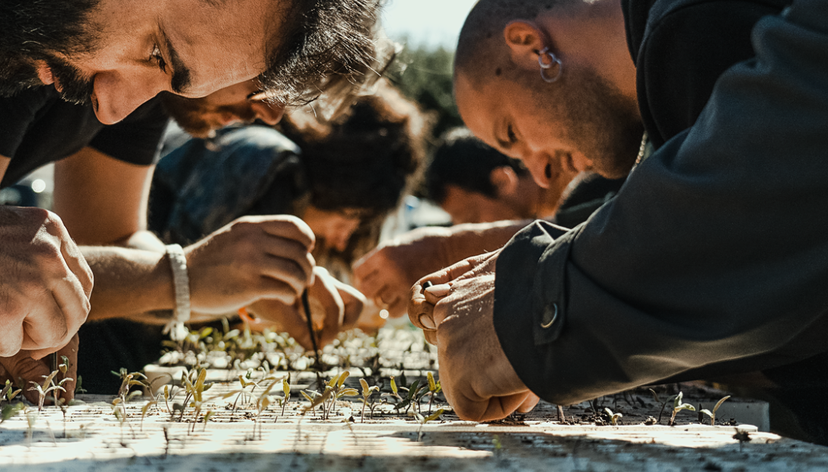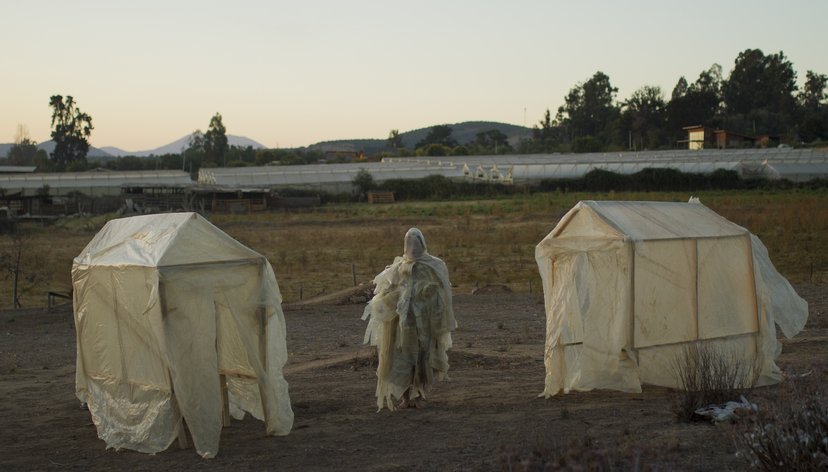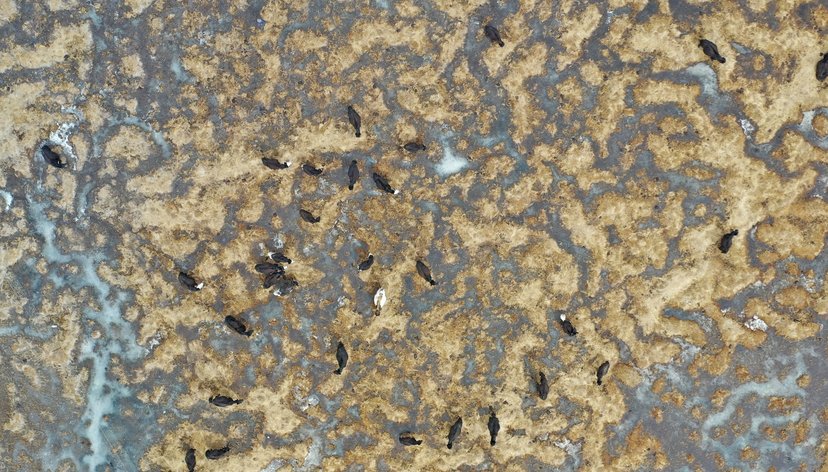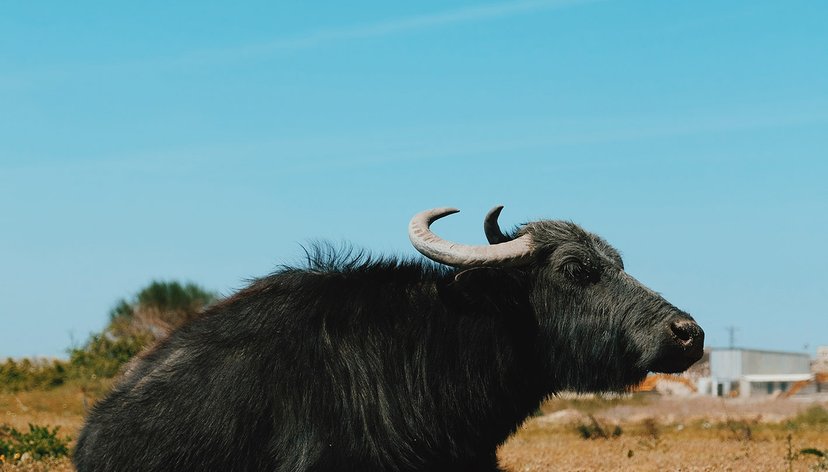CLIMAVORE x Jameel at RCA
Jump to
Reimagining foodways for drylands and wetlands in the climate crisis.
About
Expanding the work of CLIMAVORE on food systems in the climate crisis, CLIMAVORE x Jameel at RCA is a research initiative that reimagines foodways for drylands and wetlands. A partnership between CLIMAVORE and Community Jameel at the RCA, it advances ecological networks to produce new knowledge and action towards spatial justice.
Based in the School of Architecture, the three-year partnership has two focussed research projects, which will be complemented with two research grants to develop CLIMAVORE projects worldwide.
Water Buffalo Commons
Wetlands, mangroves, swamps, bogs, marshes and mudflats have been drained to ‘improve’ land for centuries. These liminal landscapes are nonetheless important biodiverse habitats, crucial migratory bird stopovers, water-filtering zones, and invaluable buffers against sea flooding and storms, contributing to overall climate resilience.
On the outskirts of Istanbul, inland wetlands are home to water Buffalo, their herders, and a host of species that depend on them. Knowledge brought by Bulgarian herders in Ottoman times, and Turks exiled from Greece after the 1923 population exchange, boosted buffalo milk as an essential ingredient in yoghurt, kaymak and sütlaç.
Since 2013, the region has seen a number of hyper-scale constructions and the plans for digging a new shipping canal that threaten to transform the ecosystems of the Black Sea and Sea of Marmara. Located in the lands of the Buffalo, these megaprojects have rezoned the area from rural to urban, draining the wetlands and fragmenting the grazing commons as a side-effect.
Through the study of metabolic interactions across species the project works to preserve the food and ecological heritage of the wetlands, herders and their pastoralist ways of life. It builds upon existing collaborations with the herders, and the work developed by CLIMAVORE in Istanbul over the past four years.
Outputs
Water Buffalo Commons Baseline Report
In December 2023 CLIMAVORE x Jameel completed the Water Buffalo Commons Baseline Report (PDF). This report documents the current status of Istanbul's wetlands and the cultural heritage of the remaining pastoralist practices through a qualitative study including ongoing site-visits, mapping workshops, individual interviews and group conversations held between 2019-23.
The findings highlight the potential for the wetlands of Arnavutköy and Eyüpsultan municipalities to be transformed once again into a productive food landscape for Istanbul, and map out potential sites of action. It argues that keeping the wetlands as common grazing areas could be supported by plural economies that can help safeguard this rich and resilient ecosystem for future generations.
Monoculture Meltdown
Most of the driest winters since the beginning of the 20th century around the Mediterranean Sea have been experienced in the past two decades. Yet the struggle to cultivate edible produce in water-scarce territories is not new. Over centuries, complex technologies have been developed to squeeze the terrain to the last drop, such as tunnels, cisterns, and terraces to channel and retain water or air humidity.
Places like Pantelleria, an island between Sicily and Tunisia without freshwater sources, developed dry irrigation techniques by building gardens with dry-stone walls. These systems consisted of microclimates to ‘water without water.’ As the heat frontier moves, increasing labour exploitation of North African and Eastern European workers continues to be driven by access to water for harvesting ‘affordable’ tomatoes, grapes, or blood oranges.
Through the study of dryland microclimates and the impact of modern industrialised crops, the project aims to experiment in Italy with alternative farming methods in drought conditions by seeking to diversify former monoculture crops that are failing to cope with climatic changes.
Outputs
CLIMAVORE Assembly
From 27–29 October 2023, the CLIMAVORE Assembly debated new cultural and artistic tactics for ecologically-driven action and policy making.
Temporarily occupying two landmark sites in Rome – Museo delle Civiltà (Museum of Civilisations) and Campidoglio (the seat of the City Senate) – it brought together a diverse set of voices to think, contend and question our collective role, as cultural producers, farmers, policymakers, activists, researchers, educators, thinkers, cooperatives, in addressing the broken food system.
The event was a shared effort to reimagine the role museums and cultural platforms have as agents of transformation in food and agriculture systems within the climate crisis.
Seasonings: Seed Activism
A lecture by Karine Peschard with presentations from the 2024 Food Action Award Winners.
Partners
CLIMAVORE
CLIMAVORE asks how we eat as humans change climate? New ‘seasons’ are emerging as the lines between spring, summer, autumn and winter, or rainy and dry seasons, are increasingly blurred, while periods of polluted oceans, soil exhaustion, subsidence, pandemics and droughts are becoming more prevalent.
CLIMAVORE develops proposals for adaptive forms of eating, shifting for instance to food infrastructures configured around drought-resistant crops in a period of water scarcity, enhancing pastoralist structures to prevent wetland drainage, or transition into small-scale filter-feeding aquaculture during times of polluted waters by intensive fish farms.
Initiated by Daniel Fernández Pascual and Alon Schwabe (Cooking Sections) in 2015, CLIMAVORE’s site-responsive iterations are either self-initiated or commissioned by cultural institutions, independent bodies, and non-governmental organisations. As the Principal Investigators of this partnership (2023-2026), they will lead two research projects developed at the Royal College of Art, School of Architecture, using architectural and artistic investigative tools, education and action to advance ecological networks beyond current understandings of sustainability, and produce new knowledge around food and climate justice.
Community Jameel
Community Jameel advances science and learning for communities to thrive. An independent, global organisation, it was launched in 2003 to continue the tradition of philanthropy and community service established by the Jameel family of Saudi Arabia in 1945.
Community Jameel supports scientists, humanitarians, technologists and creatives to understand and address pressing human challenges.
The work enabled and supported by Community Jameel has led to significant breakthroughs, including:
- Jameel Clinic's discovery of the new antibiotic Halicin
- Critical modelling of the spread of COVID-19 by the Jameel Institute at Imperial College London
- a Nobel Prize-winning experimental approach to alleviating global poverty developed by the co-founders of the Abdul Latif Jameel Poverty Action Lab (J-PAL).

Staff

Danielle Burrows
Project Manager

Enrico Milazzo
Research Associate

Merve Anil
Research Associate
Get in touch
For more information please contact Danielle Burrows, Project Manager
danielle.burrows@rca.ac.uk








